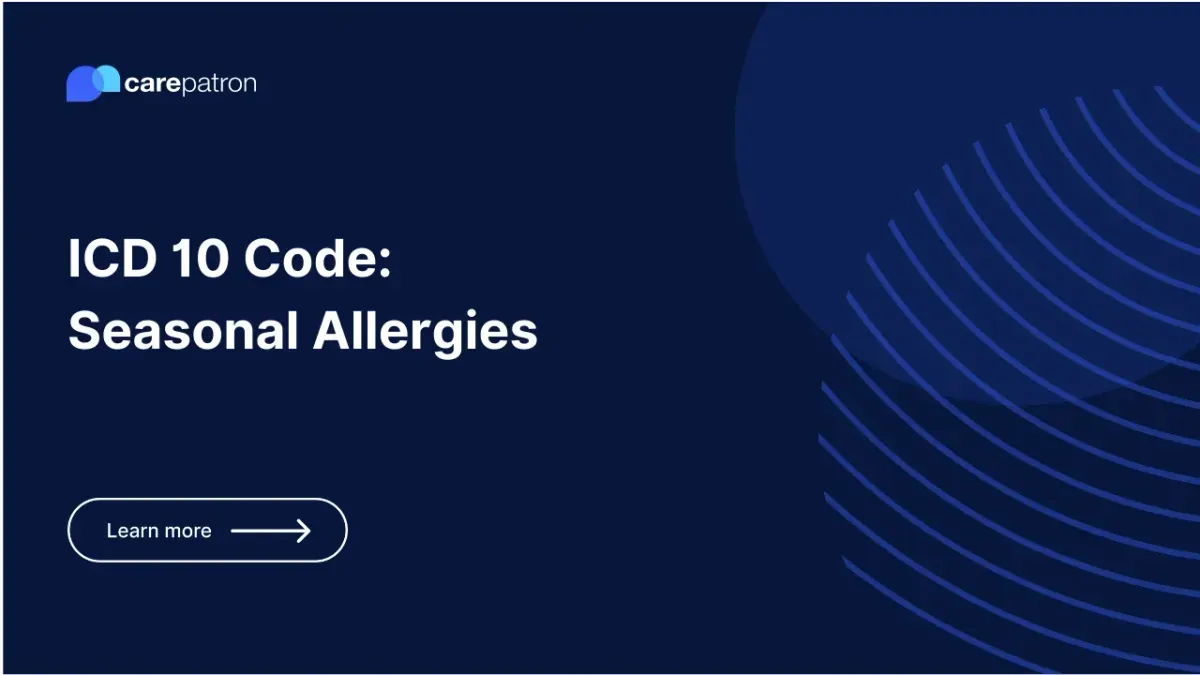
Seasonal Allergies ICD-10-CM Codes
Learn about the ICD-10 codes used for seasonal allergies. Discover the significance of each code, the billability, and the common treatments involved for a seamless medical billing.
Use Code
Commonly asked questions
Seasonal allergies typically occur from early spring through fall, with symptoms starting as early as February or March and often peaking in April and May due to high tree and grass pollen levels. Weed pollen becomes more prevalent in late summer and continues into early autumn.
While pollen counts are generally lower in winter, some tree pollens can cause symptoms even in January, making allergies possible year-round, depending on the allergen and location.
For severe seasonal allergies, it’s important to minimize exposure by keeping windows closed, using air purifiers, and avoiding outdoor activities when pollen counts are high. Over-the-counter or prescription antihistamines, nasal corticosteroids, and decongestants can help relieve symptoms.
Saline nasal rinses and wearing sunglasses outdoors may also reduce irritation. In persistent or severe cases, allergy immunotherapy (allergy shots) or consultation with an allergist may be necessary for long-term management.
Seasonal allergies typically improve or resolve as the pollen season ends, usually by early autumn when pollen counts drop significantly. However, some individuals may experience symptoms year-round if they are allergic to indoor allergens or certain pollens that persist in winter. While symptoms often subside outside of peak pollen seasons, allergies can recur annually and may require ongoing management.
EHR and practice management software
Get started for free
*No credit card required
Free
$0/usd
Unlimited clients
Telehealth
1GB of storage
Client portal text
Automated billing and online payments
